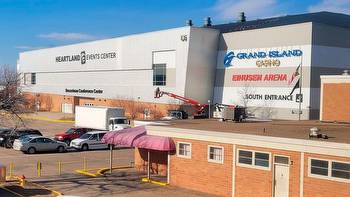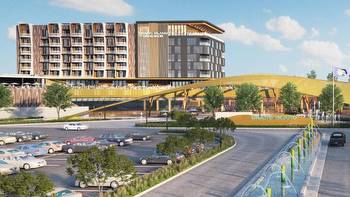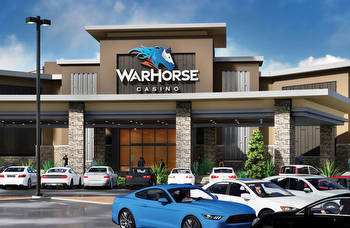Norfolk senator introduces bill to prevent casinos from getting TIF

When Nebraskans approved legalizing casinos, they were promised that some of the tax revenue would go toward property tax relief.
So isn’t it wrong now for casinos to get tax-increment financing — which subsidizes property taxes — to build their casinos?
That’s the view of state Sen. Mike Flood of Norfolk, who introduced Legislative Bill 713 on Wednesday to prohibit redevelopment plans with TIF related to casinos and licensed racetracks.
The proposal Nebraskans passed in 2020 includes that the casinos are to pay a 20% tax on gross gambling revenue, with 70% of that tax going to the state’s property tax credit fund. That fund offsets a portion of property tax bills and was touted as one of the reasons for voters to pass it.
Flood said Nebraska communities have a vested interest in seeing run-down, economically disadvantaged areas being redeveloped.
“That’s the goal of TIF, to attract private development to blighted and substandard areas in which development otherwise would not happen,” Flood said.
LB713 likely will be assigned to the Urban Affairs Committee, with a hearing yet to be scheduled.
While TIF might seem complicated, the mechanics are easy to understand, Flood said. The developers’ infrastructure improvements are subsidized with property tax dollars. Municipalities, school districts, counties, community colleges, ag societies and others give up that revenue for up to 15 years, with other taxpayers picking up a larger share of the local tax burden, he said.
While the Legislature has made significant improvement on property taxes, the top issue Flood hears about from constituents remains property taxes, he said.
So to subsidize development, there must be “a real need.” In an area that is blighted, TIF obviously can be a good trade-off, he said.
“Using TIF to subsidize the construction of a multimillion-dollar casino on the backs of taxpayers, in my opinion, is just wrong and should be illegal,” Flood said.
The casinos in Nebraska are going to happen without TIF, he said.
“Nobody when they went to the ballot box in Nebraska thought, ‘We are going to need TIF to make sure that we have casinos,’ ” Flood said.
The City of Omaha approved $17.5 million in TIF incentives for the casino there.
“There’s no question there’s going to be a casino in Omaha,” Flood said. “It’s likely the Legislature is going to put restrictions on how many casinos you can have in the state, and so the casino inside Omaha is going to make money regardless of whether it gets TIF or not.”
There’s nowhere else in the country where property tax subsidies are given to casinos, Flood said.
Omaha erred because the casino would have happened anyway, he said. Now if the bill is passed, it would probably be too late to affect Omaha but would impact other possibilities, including Lincoln, Columbus and more.
“Reasonable people can disagree on whether casinos will be a positive or negative force in Nebraska,” Flood said, “but whatever your views on gambling, I think we can all agree that taxpayers have no place providing millions of dollars in property tax subsidies for casino development.”
Warhorse Gaming, a subsidiary of Ho-Chunk Inc., the economic development arm of the Winnebago Tribe of Nebraska, also is planning a casino in Norfolk. A license has yet to be issued by the Nebraska Racing and Gaming Commission.
So if Warhorse Gaming refuses to build a casino in Norfolk because it cannot get TIF, would Flood be OK with that decision?
“Yes,” he said. “At the end of the day, I think the taxpayers of Madison County and the homeowners in the cities and the business owners should have to pay full fare on their property taxes, yet a casino west of town wouldn’t (if TIF is given).”

























